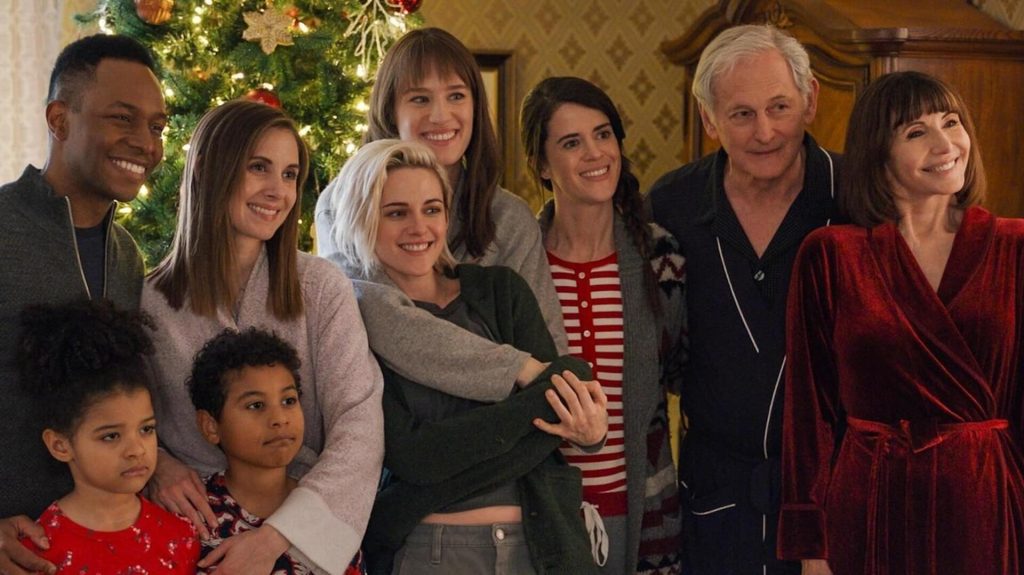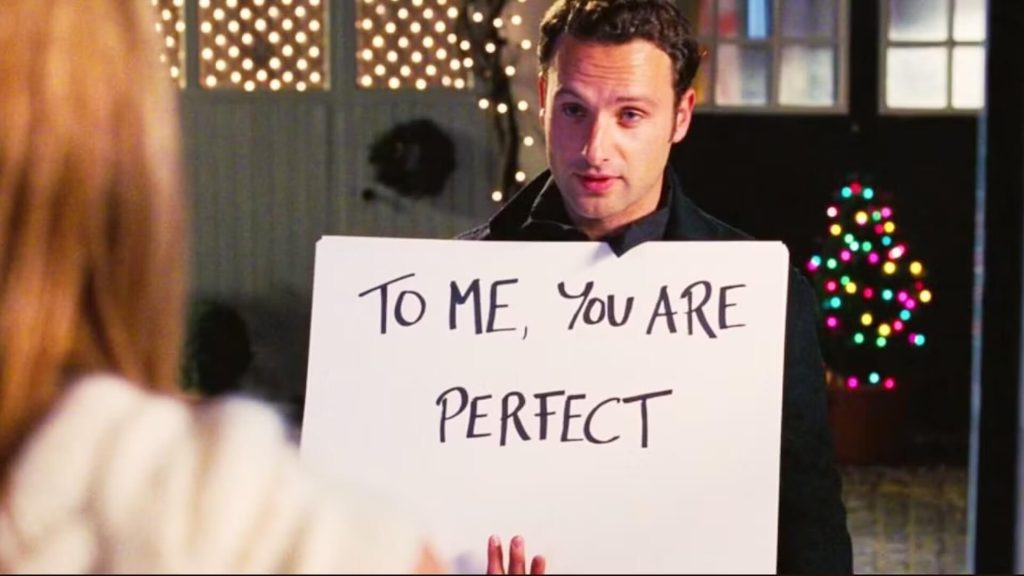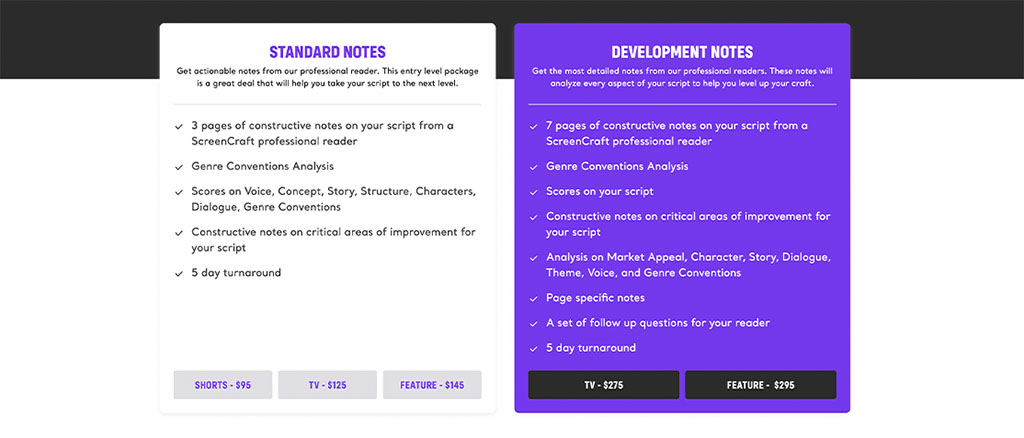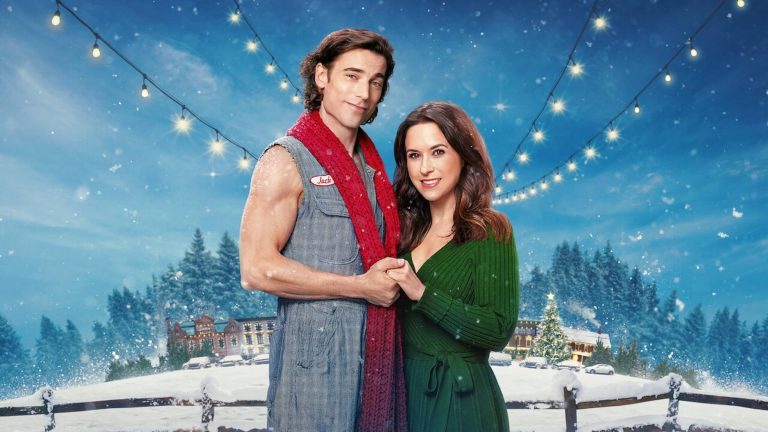7 Essential Tropes for a Christmas Rom-Com

Many may make fun of them—and most are certainly well-deserving of those pokes and prods—but there’s no denying that even though most Christmas rom-coms (the kind you find on Hallmark, Lifetime, and, now, Netflix and other streamers) are predictable, formulaic, and, well, sometimes fairly cheesy, the sub-genre is huge and audiences love them.
There’s a demand for Christmas rom-coms from the audience, which means that studios, production companies, and especially networks and streamers are actively looking for the next predictable, formulaic, and sometimes cheesy script—hopefully with a marketable twist or that extra special ingredient.
Here we offer some fun essential elements for anyone looking to write the next “great” Christmas rom-com that we could all be watching—by choice or by demand of family—next holiday season.
1. Relatable and Overworked Protagonist
The lead character is usually too busy for love—or Christmas. You’ll see this in nearly every Christmas rom-com. Why? The best cinematic stories offer as much conflict for the protagonist as possible. It keeps the audience engaged and interested in what the protagonist is going through.
But there’s a key factor here. The people watching these movies can relate to being overworked. Whether it’s the busy life of a single mother/father, teacher, company executive, movie star, business owner, or magazine editor, we can all relate to juggling family and job duties—and being overwhelmed by life.
We live vicariously through the protagonists, so relating to them is so important. And because we live vicariously through them, it’s a thrill to see these characters let go of what we wish we could let go of, if not for just a couple of hours (or a couple of days or weeks in the world of the protagonist).
That is why these movies are so popular. We get a chance to see what it is like to take some time away, breathe, and maybe experience the magic of falling in love again.
If you want to flip the script a bit, you could take this Christmas rom-com trope and flip it by featuring a character who is living the quiet and simple life, and showing them what it’s like to live in the shoes of someone who is overworked (hmmm, maybe Santa?).

'The Holiday' (2006)
2. A Snow Globe Setting
Location is everything. A small town setting is the antithesis of the hustle and bustle of overworked lives (i.e., the big city).
Christmas, for most, is all about going back home to our roots. While plenty of Christmas rom-coms have been set in the big city, it’s the snow globe-like setting of small towns that attracts a lot of audiences—another reminder for them to sit back and enjoy a simpler life.
Here’s a tip: if you want to subvert expectations and offer a twist, use the snow globe cliche and flip it on its head. Find an unexpected location and insert the usual Christmas dynamics and visuals to create a new hybrid. Christmas in Hawaii? Christmas on a Space Station? The sky is (or isn’t, as far as the latter) the limit.
3. The Christmas Meet-Cute Moment
The meet-cute in Christmas rom-coms is a scene-stealer, designed to be both a charming and memorable moment where two soul mates cross paths. It’s meant to be a show-stopping moment of magic and romance.
Read More: 100 Scenarios for Potential Meet-Cute Moments
This is the essential moment in Christmas rom-coms. Some of them are truly cringe-worthy these days since nearly every meet-cute moment has been done over and over and over again. However, they remain a staple in any romantic comedy.
How can you offer something different (if you desire) in your script? Maybe they meet ugly. We’ll let you explore what that may entail.

'When Harry Met Sally' (1989)
4. The Christmas Magic (Literal or Figurative)
Whether it’s enchanted objects or the magic of the season, this element brings whimsy to the audience.
The fantastical elements in Christmas rom-coms work best when they blend seamlessly with the emotional beats, reminding viewers of the magic in believing, whether it’s believing in Santa and his magical world, the magic of belief, or the magic of love.
You could subvert the expectations of this element by having something thought to be magical end up being something very real and of this world, which is perhaps even more relatable and exciting.
5. A Lovable Supporting Cast
Side characters bring humor, warmth, and depth to the story—and the interactions they have with a cast of characters help to define and showcase their characteristics and character arcs.
Supporting casts of characters should both challenge and support the protagonist.
A supporting cast also offers more depth to the story itself by providing side adventures and necessary B and C storylines that have some entwined connection to the A story.
Sure, if you want to subvert this expectation to shake things up a bit, you could have two characters stranded on an island together as you find creative ways to conjure B and C stories using just the two love interests and their surroundings. Interacting with a volleyball would be too derivative, but you get my drift.
Read More: 3 Types of Supporting Characters Your Protagonist Needs

'Happiest Season' (2020)
6. A Christmas Tradition as a Plot Driver
Most screenwriters who have successfully written and produced Christmas rom-coms usually cherry-pick particular Christmas traditions to use as plot engines:
- Christmas cookie tradition leading to bake-offs or bakery plots.
- Christmas decoration tradition leading to decorating competitions.
- The mistletoe kissing tradition leads to a magical element.
Christmas traditions are relatable and familiar—and that’s what audiences love.
How can you subvert this expectation? Perhaps you can have a protagonist bent on creating new Christmas traditions. Maybe they are tasked with the magazine they edit to create new traditions, which leads to eventual chaos that they must fix.
7. The Big Misunderstanding and Grand Gesture
A pivotal misunderstanding creates conflict and pushes the couple apart before the inevitable reconciliation happens via a grand gesture. It’s the go-to in any romantic comedy—but especially for Christmas ones you find on Hallmark, Lifetime, Netflix, and now any streamer.
You must always ensure the misunderstanding feels believable, but not so insurmountable that the reconciliation and grand gesture feel forced. And always make the grand gesture personal and tied to the character arcs. The audience should feel that it couldn’t happen any other way.
You can subvert expectations and surprise the audience by maybe having the two love interests in on the misunderstanding, while everyone around them believes something different. The grand gesture could be the reveal that they, this whole time, knew the truth.
Read More: 5 Must-Read Classic Holiday Movie Screenplays

'Love Actually' (2003)
---
These are all the essential expectations for Christmas rom-coms. Hallmark used to be the sole provider for this subgenre. Lifetime was right there with them. But Christmas rom-coms have proven to be so in demand that big streamers like Netflix, Amazon Prime, and Apple TV have jumped on board.
You can (and should) also use these elements to subvert expectations as well. Sometimes, all screenwriters need to do to get noticed is to offer something very familiar and comfortable with an unexpected twist.
There are plenty of other holiday season holidays beyond Christmas. We’ve already seen some come to light on the small screen, but consider the diversity of the audience. You could have a dual Hanukkah and Christmas hybrid—or something solely Hanukkah. You could have Kwanzaa, Ōmisoka, and Pancha Ganapati, among others.
Happy Holidays to all!
Read More: ‘Hot Frosty’ Is a Formulaic Holiday Movie—This Is Why We Love It!
Try our Genre Notes and get matched with a reader with relevant industry experience!

Ken Miyamoto has worked in the film industry for nearly two decades, most notably as a studio liaison for Sony Studios and then as a script reader and story analyst for Sony Pictures.
He has many studio meetings under his belt as a produced screenwriter, meeting with the likes of Sony, Dreamworks, Universal, Disney, Warner Brothers, as well as many production and management companies. He has had a previous development deal with Lionsgate, as well as multiple writing assignments, including the produced miniseries Blackout, starring Anne Heche, Sean Patrick Flanery, Billy Zane, James Brolin, Haylie Duff, Brian Bloom, Eric La Salle, and Bruce Boxleitner, the feature thriller Hunter’s Creed, and many produced Lifetime thrillers. Follow Ken on Twitter @KenMoviesand Instagram @KenMovies76
Tags
Get Our Screenwriting Newsletter!
Get weekly writing inspiration delivered to your inbox - including industry news, popular articles, and more!



























